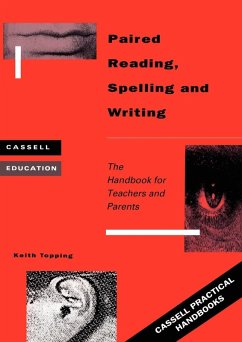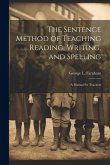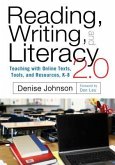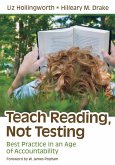Describing specific structured methods for developing and improving literacy skills, this work provides detailed advice about successful organization, coupled with photocopiable masters of necessary materials. The methods are designed with the intention that all students and teachers can benefit, regardless of age and ability. They require no complex technology or expensive materials.
Hinweis: Dieser Artikel kann nur an eine deutsche Lieferadresse ausgeliefert werden.
Hinweis: Dieser Artikel kann nur an eine deutsche Lieferadresse ausgeliefert werden.








